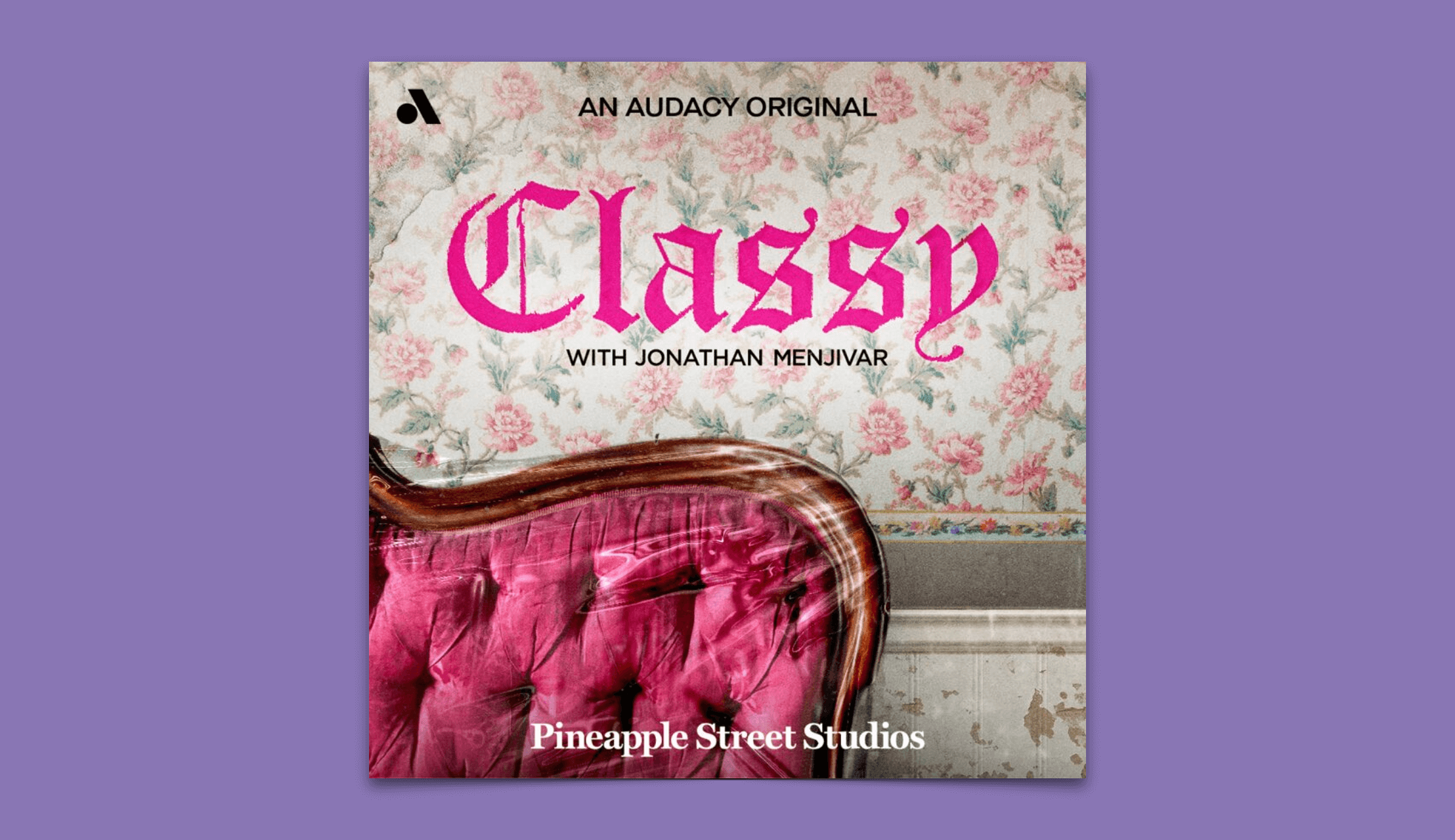I love Terry Gross. I admire her ability to ask hard-hitting questions in a soft tone, and her commitment to culture. Producer Jonathan Menjivar loves Gross, too. She gave him his start in radio, mentored him while he worked on Fresh Air, and even inspired him to adapt her snort-laugh. So, it seemed only fitting when Gross made a guest appearance on Menjivar’s new podcast, Classy. But after listening to the episode, and the conversation that takes place between Gross and Menjivar, I felt differently about the Fresh Air host.
In the episode, “A Classy (and Uncomfortable) Laugh with Terry Gross,” Menjivar speaks with Gross about having grown up in a working-class Latino family. At one point, he recalls feeling culturally “out of place” during his time at Fresh Air. His mainly upper-middle class colleagues constantly discussed The Godfather, musicals and Scorsese movies, things he had never seen.
I don’t know if you’ve ever had a conversation with anyone about class, but they are often the worst. They’re uncomfortable, everyone gets defensive, and nobody can find the right words. Menjivar’s conversation with Gross was no different. Gross couldn’t quite find how to express herself, and said she never noticed a class divide in the workplace. Eventually, she apologized to Menjivar for any classist behavior at her show’s workplace. I still love Gross, but this was not a comfortable conversation to hear.
But conversations like these are exactly why Classy is my new favorite podcast. Menjivar explains that he started this podcast because class is “really hard to talk about, but too big to ignore.” In the past few years, Menjivar moved up the class ladder, from working class to media elite. And he’s not quite sure how to deal with the fact that he now wears cashmere socks.
Want to receive our latest podcast reviews and episode recommendations in your inbox? Sign up here for our weekly newsletter.
Menjivar uses Classy to understand himself and his new class status, while also exploring all the corners of our lives that class touches. Episode topics range from the class implications of shredded cheese, to the music of Pulp, to the military’s class-focused recruitment strategies. But what makes the show particularly special is Menjivar’s vulnerability when trying to pinpoint the myriad ways, both big and small, that class shapes our experiences of the world.
Menjivar starts off Classy by showing how class affects everything. In the first episode, “Are Rich People Bad?,” Menjivar speaks with sociologist Rachel Sherman about how rich people won’t explicitly talk about money with her, but will speak indirectly about money through things like pricey home renovation projects. After that episode, I was hooked. From the get-go, Menjivar shows that we need to have more frank discussions around class, rather than skirting the issue.
Throughout the series, Menjivar continually confronts the difficulty of talking about class. As a personal finance journalist, I know that simply saying “class rules everything” is easy, but explaining how it does that is hard. That’s why I love Classy –– it attempts to articulate a social system we can’t necessarily see, but that colors everything we do.
In one episode, “Parmesan Foam and Shredded Cheese,” Menjivar and comedian Chris Gethard (who also grew up in a working-class family) lament how everyone keeps telling them to stop feeling uncomfortable about ordering a $35 entrée once in a while. The two even go to a fancy restaurant and order pork belly and crudités in an attempt to de-program their guilt over culinary luxuriating. But they can’t seem to shake their discomfort.
This is why Classy is so good. Menjivar understands that class is more than just a tax bracket, or the amount of money you grew up with. It’s how you notice things most people don’t, or how you feel weird when you should feel normal. It’s a feeling you can’t explain. Classy just ended its current run, but I hope it comes back for more.
¤
Sabina Wex is a writer and podcast producer in Toronto. Her work has appeared in CBC, Business Insider and Hey Alma.

